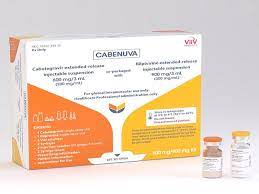Pfizer Inc. (NYSE: PFE), a stalwart in the healthcare sector, offers a compelling narrative for investors seeking stability combined with growth potential. With a market capitalization of $142.37 billion, Pfizer stands as a titan in the drug manufacturing industry, renowned for its extensive portfolio of biopharmaceutical products. From cardiovascular treatments to cutting-edge mRNA technology, Pfizer’s diverse product lines underscore its expansive reach and innovative prowess.
Currently trading at $25.04, Pfizer’s stock price is near the midpoint of its 52-week range of $21.59 to $27.37. This stability, however, does not paint the full picture of its investment appeal. Analysts have set a target price range of $24.00 to $36.16, with an average target of $28.96, suggesting a potential upside of 15.64%. This prospective gain is an attractive proposition for investors, especially when coupled with Pfizer’s robust dividend yield of 6.87%.
The company’s financial health is highlighted by a free cash flow of over $14.3 billion, signaling strong operational efficiency and the capacity to sustain its dividend payouts. However, investors should note the high payout ratio of 99.42%, indicating that nearly all of Pfizer’s earnings are returned to shareholders as dividends—a strategy that may appeal to income-focused investors but also raises questions about reinvestment for growth.
Pfizer’s valuation metrics present a mixed bag. The forward P/E ratio stands at a modest 8.04, suggesting the stock is undervalued relative to its earnings potential. However, the absence of trailing P/E, PEG, and other valuation ratios requires a deeper dive into the company’s earnings dynamics and market expectations, particularly as the company navigates a revenue growth decline of 5.90%.
Performance metrics reveal a return on equity (ROE) of 10.60%, reflecting competent management of shareholder funds. The current technical indicators, such as a Relative Strength Index (RSI) of 39.15, position the stock as nearing an oversold territory, potentially flagging a buying opportunity for value seekers.
Pfizer’s strategic collaborations, notably with Bristol-Myers Squibb, Astellas Pharma, and BioNTech, bolster its R&D pipeline and market reach, reinforcing its standing in the competitive biopharmaceutical landscape. These partnerships are pivotal as Pfizer continues to innovate in areas with significant unmet medical needs, from infectious diseases to rare chronic conditions.
Analyst sentiment towards Pfizer is largely neutral, with 10 buy ratings, 15 hold ratings, and a single sell rating. This cautious optimism reflects the market’s balanced view of Pfizer’s current challenges and future opportunities.
For investors, Pfizer represents a blend of reliable income through dividends and potential capital appreciation. While the company faces hurdles such as declining revenue growth and a high payout ratio, its strategic focus on innovation and strong cash flow generation are formidable assets. As the healthcare sector continues to evolve, Pfizer’s commitment to addressing global health challenges through advanced therapies and collaborations positions it as a resilient player in the market. Investors should weigh these factors carefully, considering both the immediate income potential and the strategic growth avenues that Pfizer offers.








































